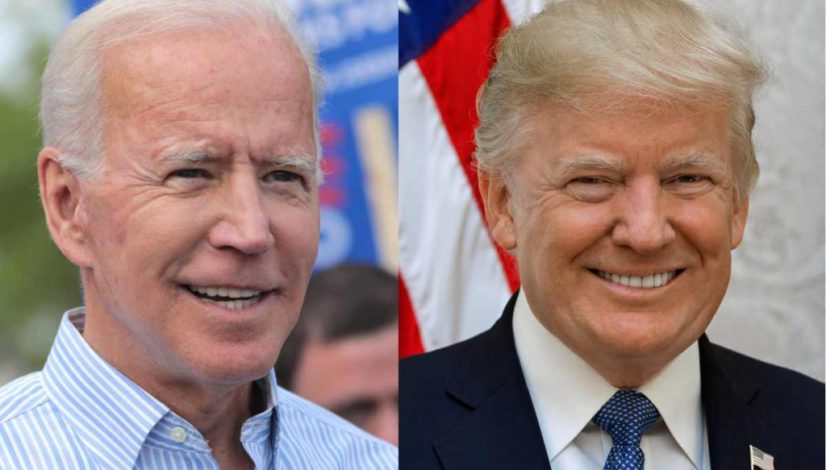Mexico Manufacturing and the US Election
Regardless of the outcome, the election will present both challenges and opportunities for Mexico Manufacturing.
On Tuesday, November 3rd the presidential election was held in the United States of America. As is the case every four years, the day signifies both challenges and opportunities for Mexico and the rest of the world.
This blog post will focus on the important issue of trade. As was the case during the campaign, America’s international business practices will be closely scrutinized. During the campaign and since his election of 2016, Donald Trump promised voters that never again would any country take commercial advantage of the United States; as had happened, he said, with previous presidents whose policies led to business and job flight, manufacturing loss, and dependence on China in some of the most important sectors of the nation’s economy.
Bilateral affairs related to Mexico are many. Each has varying degrees of importance, but trade, in particular, is especially relevant in and of itself. This is because of the Latin American nation’s heavy dependence on its trading relationship with the United States.
During Trump’s presidency, the speech was “Declaring America’s Economic Independence” and “Make America Great Again.” which resulted in using his use of the national trade/security binomial to promote his stated economic goals. Trump’s detractors have alleged that his vision for US trade policy has been characterized by protectionism, nationalism, and has demonstrated a managed approach to commercial exchanges with US trading partners.
As an example of the aforementioned, between October 2018 and November 2019, the Trump Administration enacted 841 tariffs and 1,340 non-tariff barriers where the protection of domestically manufactured washing machines and solar panels, in particular, stood out. In addition to this, Section 232 was applied to steel and aluminum imports, while Section 301 against China also stood out.
It should be remembered that, in the 2016 election, Trump lost the popular vote by a count of about three million ballots cast but won the Electoral College. He achieved a narrow margin of victory in the states of Pennsylvania, Michigan, and Wisconsin.
The 2020 presidential campaign
During this year’s campaign cycle, trade has not been a key part of speeches that have been made by President Trump or candidate Biden. The central themes that have been highlighted have been the management of the Covid-19 pandemic, and economic and social issues.
It will be a close battle to win the Senate. Secondly, this may be an election in which the victor may be determined by mail voting; more than 50 million people have gone to the polls before November 3rd. Mail-in voting will most likely lengthen the time that it will take to determine who the victor is.
Implications for Mexico
The trade relationship between the United States and Mexico went from instability during the campaign and the Trump administration’s early years to stability after the signing of the United States-Mexico-Canada Free Trade Agreement (USMCA). The agreement replaced the NAFTA in July this year. Much has been said about the positive and negative aspects of the new treat by both sides. What the implementation of the accord did, however, was to bring back stability and certainty to the commercial relations conducted between the US and Mexico.
One issue that can be highlighted under the USMCA is the fact the United States can involve itself in disputes that arise from the changes in the rules of the energy sector that have been made by the Mexican administration. Any disagreement can result in the invocation of the investor-state dispute settlement mechanism.
The USMCA is comprised of some significant differences with respect to NAFTA. One of them which is of particular note is that the USMCA includes that the investor cannot file an arbitration application under the treaty if he or she has not filed an application before a Mexican court. Once this requirement has been met, an investor can access the treaty’s dispute resolution mechanism.
Disputes must have originated in government actions for the implementation of direct and indirect expropriation; violations of national treatment; violations of the most-favored-nation provisions; especially in so-called covered sectors such as oil and gas, energy, telecommunications. Other sectors will have less protection and limited access to the USMCA dispute resolution mechanism.
¿Trump 2.0 the Biden 1.0?
All indications are that regardless of whether Trump or Biden wins the election, trading relations between the United States and Mexico will not change in any appreciable way.
With Trump, the situation could be volatile and uncertain because things tend to be affected by the tweet of the moment. Trade policy under Joe Biden is unlikely to be subject to radical change.
Photo Credit: By Joe Biden: Gage Skidmore from Peoria, AZ, United States of America (source: Joe Biden); User:TDKR Chicago 101 (clipping)Donald Trump: Shealah Craighead (source: White House)Сombination: krassotkin – Joe Biden: File:Joe Biden (48554137807) (cropped).jpg <- File:Joe Biden (48554137807).jpgDonald Trump: File:Donald Trump official portrait (cropped).jpg <- File:Donald Trump official portrait.jpg, CC BY-SA 2.0, https://commons.wikimedia.org/w/index.php?curid=95804882

